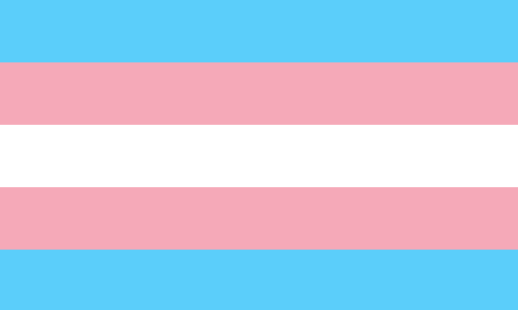
Disclaimer: We acknowledge that not all pregnant people will remain the parent of their child and that not all parents may have biologically given birth to their child. In this article, we use the term “parent” for the sake of inclusivity and consistency.
Finding out that your friend is pregnant can cause a variety of reactions, from excitement to panic, all depending on how this significant event will affect your friend’s life. Since they have confided in you about their pregnancy, it is likely that they want your support. If you are wondering how you can help your friend, this article will review a variety of circumstances in which pregnancy can occur, and how you can help make your friend’s journey the best it can be.
Table of Contents
What Can I Do to Help?

There are several ways you can help make your friend’s pregnancy easier, and the following tips can apply in most situations. Overall, listening to your friend when they express their needs and supporting their decisions throughout their pregnancy are great ways to be supportive. We will review special circumstances for pregnant people later in the article, but for now, keep this advice in mind:
Respond Appropriately to the News that They Are Pregnant
Your friend is trusting you with the news of their pregnancy, and they may be coming to you feeling worried, scared, happy, excited, or a mix of these emotions. How you respond to the news has the potential to impact them greatly, so try to respond in a positive and non-judgmental way. When discussing issues such as abortion, adoption, or raising a child, know that your friend may be in a vulnerable state of mind, so finding ways to communicate with them that do not add to the anxiety they may already be experiencing can be very helpful.
Visit the Doctor with Your Friend
If your friend is not absolutely sure that they are pregnant, or if they have only taken at-home pregnancy tests, it is essential to visit a doctor to confirm the status of pregnancy. Ask them if they would like you to accompany them on their next doctor’s visit, especially if they do not have support from the biological father of the fetus. It may be very comforting for your friend to not have to go through medical examinations and decisions alone, and your presence during prenatal appointments is a great way to show your love and support. Furthermore, hearing information from your friend’s medical provider can help you better understand what they are going through physically and emotionally due to the changes that their body is experiencing.
Become Educated on What Your Friend May be Going Through
Educating yourself about what happens during pregnancy can help you better understand what your friend is going through and will help you empathize with them. Symptoms may include mood swings, nausea, food cravings, bodily changes, fatigue, and many others. Understanding what is happening during each trimester of your friend’s pregnancy will help you better understand what your friend’s needs are. Educate yourself on how to make your friend’s pregnancy a healthy experience. If your friend is still considering their options, educate yourself on the possibilities available, especially locally, including adoption, abortion, parenthood, and the processes of childbirth.
Support Them in Whatever Way They Need
If your friend is keeping the baby, your enthusiasm about their decision will hopefully help them feel like they made the right choice. There will be a lot of preparation necessary to get ready for the different stages of pregnancy and the child’s arrival, so offer whatever support and help you can throughout this process. Furthermore, remember that you were friends before this pregnancy. Be a supportive friend, but do not treat them differently just because they are pregnant. Continue doing activities you enjoy together as much as possible; a sense of normalcy can be a relief for a pregnant person when so much is changing in their lives. Your friend may want to use your time together to relax and not think about being pregnant, and this is perfectly acceptable. The best way to find out what support your friend needs is to listen to what they say and how they feel, and respond appropriately.
What if They Are Not Sure Whether or Not They Are Keeping the Baby?
Your friend may be unsure whether they are ready to take care of a child. Try to be as supportive as possible as they make this difficult decision. Be there for them to talk to. Listen to their thoughts and feelings on the issue. You can encourage them to talk to a doctor, counselor, or advisor. Check out this page for organizations and phone numbers that can help your friend talk about their options and decide what is best for them if they are not ready for parenthood.
Your friend may be considering abortion if they are not ready to have a child. If your friend is unsure whether or not they want to have an abortion, the two of you can familiarize yourselves with the arguments for and against abortion. Once you are both well informed, it may be easier to make a decision. However, the choice to have an abortion is intensely personal, and even if you do not support abortion, since it is your friend’s body, you should defer to their choice. Respect their decision as much as possible, and if they decide to change their mind, support that decision too. This is a difficult choice to make, so they will need your support no matter what path they choose. Try to empathize with their situation. Ask them what they need from you and how you can help. Once your friend has decided to have an abortion, you can help them find a reputable abortion clinic. Be aware that false abortion clinics exist in some areas and may interfere with your friend receiving an abortion. Know that after an abortion, your friend will need your support just as much as they did when they told you about their pregnancy. Even if it is hard, try to be strong for them in their time of need; that is what friends are for, after all.
How Do I Act Towards Them?
It may be difficult to know how to properly respond during a friend’s pregnancy, especially if they are having physical or emotional difficulties. Know that your friendship may change, but that they are still the same person you know and love. This is a time in their life when they are going through a big transition, particularly if they decide to keep the child. Be as patient and understanding as you can. Some guidelines to follow throughout your friend’s pregnancy include:
- Be supportive. Try to be there for them as much as possible and ask them what they need from you.
- Do not be judgmental. Try to imagine yourself in their place and remember that this is a big change in their life.
- Listen to anything and everything they want to say about their pregnancy and the decisions they have made.
- Offer help and suggestions when they ask, but do not tell them what to do or nag them.
- If you have a car, offer to drive them to the store for anything they need, including late night cravings, to doctor’s appointments and so forth. If you do not have a car, offer to ride the bus with them, walk with them, or find a ride for them. In any case, they should drive as little as possible, especially if they are prone to nausea or fainting.
- Try to appreciate what they may be going through. What would you want a friend to do if you were pregnant?
- Talk about delivery and raising a child if they decide to raise the baby.
Although it may not always seem like it, your friend will appreciate the love and support you provide them with. Try to understand what they are going through to the best of your ability.
My Friend is Pregnant and a Teenager

For teenage pregnancies, a lot of the previously stated advice applies, but there are three major special concerns: education, identity formation, and support. If your teenage friend decides to keep their child, they will face extra barriers to graduating high school that most of their peers will not be able to sympathize with. Graduation is typically a marker of adulthood for teenagers, but for teen parents their pregnancy supersedes this milestone as the beginning of adulthood.1 Failing to graduate high school is linked to negative outcomes for both pregnant teenagers and their children, so do what you can to help your friend get their diploma or GED.1 Secondly, pregnant teenagers often struggle with balancing their identity as a new parent and their identity as a growing teenager, and expectations of how they should behave as a new parent or teenager may conflict.1 As someone who knew them before they got pregnant, you may be in a good position to remind your friend of their favorite activities and hobbies before becoming a parent, connecting them to their former selves. Finally, support from the adolescent’s mother has been found to be key for pregnant teens in developing a positive self-image as a parent, so support your friend while they navigate their relationship with their parents.1 However, maternal support is not always available for pregnant teenagers; this is where you can step in and try to make up for their lack of parental support as much as possible. Your support has the potential to not only change the life of your pregnant friend, but help ensure a positive outcome for their future child.
My Friend is Pregnant and Transgender or Non-Binary

As transgender and gender nonconforming individuals gain increasing acceptance in our society, more and more people who do not identify with the female sex that they were assigned at birth are experiencing or wanting pregnancy. Keep in mind that some treatments for gender dysphoria, such as hormone replacement therapy and gender reassignment surgery, can affect fertility. Just as a cisgender person should, any concerns regarding the status and the physical effects of pregnancy should be discussed with a medical professional. Furthermore, there are special psychological concerns to keep in mind about how a pregnancy might impact your friend who is transgender. Unfortunately, scholarly research on the issue is limited, but one study found through analyzing interviews of transgender men who experienced pregnancy:
“…the unique finding of this study was that participants experienced significant and persistent loneliness … the process of navigating identity required considerable energy and attention … especially in the context of having ‘a lack of clear role models of what a positive, well integrated, gender-variant parental role might look like’… They noted both internal and external struggles for parents.”2
There are social norms that dictate how a person who identifies as a man should navigate the world, and these norms conflict with those that dictate how a pregnant person is supposed to behave or look like. This can cause an internal conflict from trying to manage multiple clashing identities, and external conflict from trying to manage others’ perceptions and ideas of what pregnancy should look like. To help prevent the loneliness and conflict described above, your transgender friend will need your support more than ever. Scholarship on this issue is limited, but educating yourself on both the unique needs of transgender individuals and pregnant individuals is a good start to figure out how to help your friend most effectively. Just like every pregnancy is unique, so is every person, and we recommend discussing your friend’s needs with them directly as you would with a cisgender friend. As the topic may be sensitive and maybe even confusing for your friend, approach them with an open mind and be ready to listen. Your help will be invaluable as they try to navigate a situation that many polished academics are still trying to understand themselves.
What About Me?
Your friend’s pregnancy will have an impact on your relationship with them. While they may rely on your advice as a trusted friend, know that this is their experience and your role should be to support them. If you find yourself worried or anxious about your friend’s pregnancy, it may be helpful to talk to someone else about it. Sharing these feelings with your friend might make you feel better, but it will most likely cause stress and agitation to your pregnant friend.3 Talking to a professional counselor, member of a pregnancy clinic, or trusted friend who is removed from the situation can help you deal with your own emotions regarding your friend’s pregnancy. You may be worried or concerned about how your friendship is changing. Try to embrace these new challenges and keep a positive outlook on your friendship. Remember that your friend needs you during this critical time in their life. Know that these changes may lead you to become even closer than you were before.
Concluding Remarks
Pregnancy is a monumental journey, no matter what the circumstances, and we are glad your friend has you to support them! Although they may be going through many changes in their lives, having a consistent source of support can lead to a smoother transition and a happier start to life for your friend’s new baby. While some factors of the pregnancy may be out of your control, such as the involvement of the biological father or other close family members, your role as a supportive friend is a priceless asset during and after your friend’s pregnancy. If you or your friend need more advice, please search SexInfoOnline for more information about pregnancy, sex, and much more!
References
- Turnage, Barbara F., and Angela D. Pharris. “Supporting the Pregnant Adolescent.” International Journal of Childbirth Education, 28, no. 4, 2013.
- Obedin-Maliver, Juno, and Harvey J. Makadon. “Transgender Men and Pregnancy.” Obstetric Medicine, vol. 9, no. 1, pp. 4–8, 2016.
- “My Friend is Pregnant, How Can I Help Her?” Pregnancy Resource Clinic. Web. 9 October 2016.
Last Updated: 15 February 2020.
